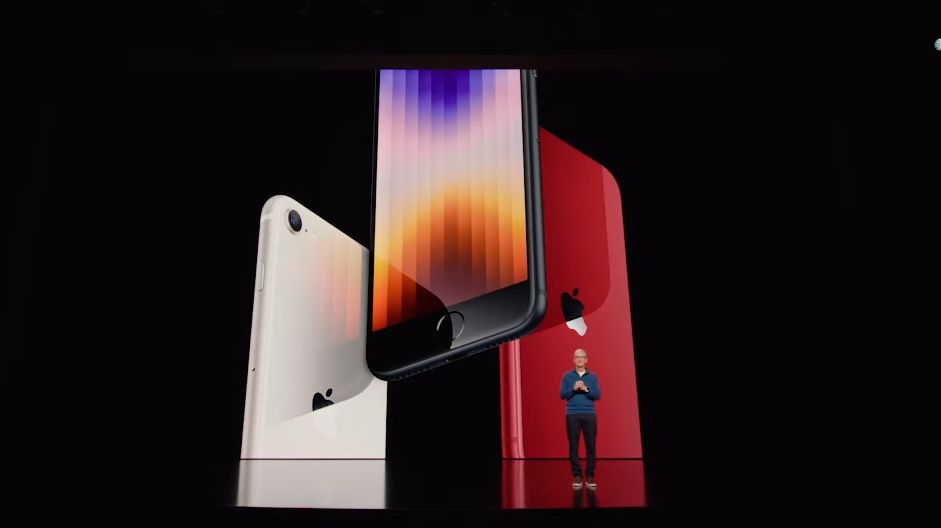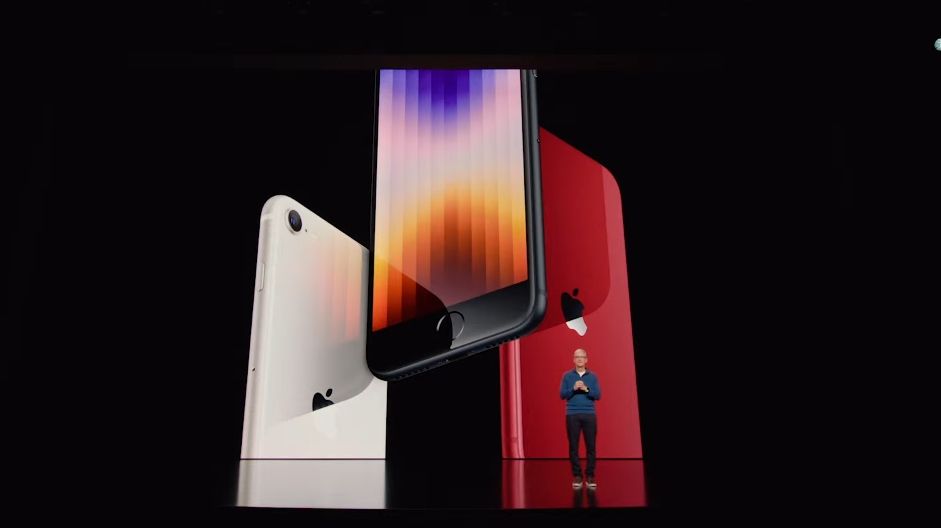
When the second-generation iPhone SE launched in 2020, it carried the title of Apple’s cheapest iPhone ever, with a price tag of $399 / £419 / AU$749 for the entry-level 64GB model.
Hopes were high then, ahead of Apple’s 2022 March Event the Cupertino, California-based firm would repeat the trick and bring us a third generation of the popular iPhone SE at an equally palatable – if not even cheaper – price point.
We even saw leaks that suggested the iPhone SE 2022 could cost as little as $300, which would be a defining point for Apple’s smartphone series, and a statement that would send shockwaves through the affordable Android market.
The reality, however, is rather different. Apple’s cheapest iPhone ever is gone, with the iPhone SE 2020 removed from the firm’s website, replaced with the more expensive (for those in the US at least) iPhone SE 2022.
Something doesn’t add up
So what’s happened? In short, the base-model of the new iPhone SE comes in $30 / £30 / AU$40 more expensive than its predecessor’s last official on sale price.
However, in the UK and Australia the iPhone SE 2020 received a post-launch price drop, and the figures reflected in the table below show these lower prices. If we compare launch prices, the UK price is the same for both handsets, while in Australia the latest model is actually slightly cheaper.
Interestingly, Apple didn’t drop the price in the US, which means in its home country the new iPhone SE is straight up more expensive than its predecessor was at launch.
| New iPhone SE 2022 | iPhone SE 2020 | |
|---|---|---|
| 64GB | $429 / £419 / AU$719 | $399 / £389 / AU$679 |
| 128GB | $479 / £469 / AU$799 | $449 / £439 / $759 |
| 256GB | $579 / £569 / AU$969 | n/a |
That’s disappointing to see, but improvements have been made and it has been two years since the second generation iPhone SE landed – so let’s give Apple the benefit of the doubt for a minute.
Here are the main upgrades on the new iPhone SE 2022 over its predecessor.
- 5G connectivity (vs 4G)
- A15 Bionic chipset (vs A13 Bionic)
- 15 hours video playback on the battery (vs 13 hours)
- Weight 144g (vs 148g)
- Deep Fusion support for front and rear cameras
- Slo-mo video support for front camera
- FaceTime HD over 5G and Wi-Fi (vs Wi-Fi only)
The inclusion of a 5G modem and the A15 Bionic chipset – which is also found in the iPhone 13 series – are strong additions and give the new SE the tools to at least compete in 2022’s market.
However, the rest of the upgrades are minor and that’s before you consider Apple is using exactly the same design, display and camera hardware. These are all, by the way, from the iPhone 8 which launched way back in 2017.
These compromises will certainly be saving Apple money, and the fact they’re being rehashed for a third time, five years on feels almost insulting to the consumer.
Android smartphone makers could have been very worried by the iPhone SE 2022, but now they’re breathing a sigh of relief as Apple has once again priced itself out of a market which it has no influence over.
Droid delirium
The new iPhone SE was Apple’s chance to appeal to an entirely new group of consumers, those priced-out by the firm’s historically premium cost points, but desperate for a slice of technology from the biggest brand on the planet.
While a $300 price point wouldn’t have brought the iPhone SE 2022 into everyone’s price range, it would net a significant number of users who have only had Android handsets to choose from.
Not that it’s a bad position to be in, as many cheap Android phones come packed full of power, cameras and features which in some cases are better the offering delivered by the new iPhone SE.
Take the Realme GT for example, it’s one of our best Android phones around and comes with a sizable 6.43-inch display, top of the range (although admittedly last-gen) Snapdragon 888 chipset, 5G, three rear cameras and crucially, a price point slightly lower than the new SE.
However, there’s something neither Realme, nor any other Android manufacturer, has – and that’s Apple’s brand appeal. Had the new iPhone SE dropped in at a price closer to $300, all of a sudden consumers in that area of the market have a difficult decision to make.
For the first time, there would be an iPhone within their budget. The chance to earn a slice of exclusivity, the ability make a new statement on their lifestyle. Sure it’s all a little superficial, but you can’t underestimate the sheet power of the iPhone brand.
Yet, Apple has opted against this. It’s opted to be less inclusive than two years ago, to shut out more consumers, rather than welcome in a new dawn. Let’s hope it has a change of heart for the iPhone SE 4.
